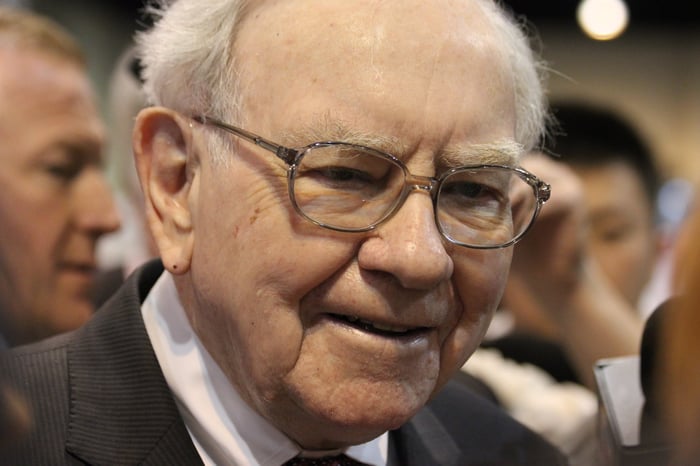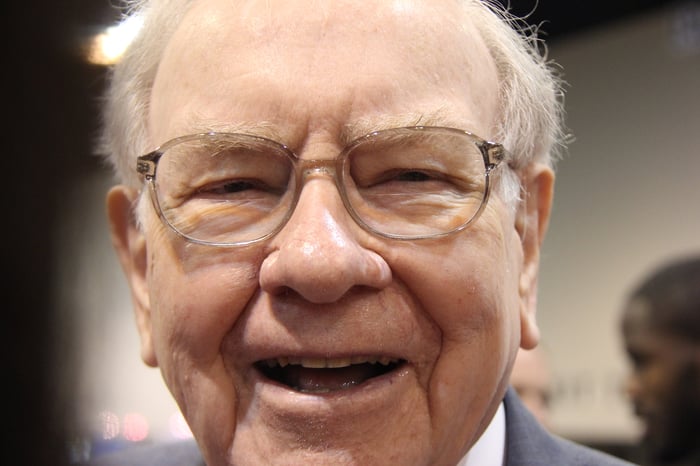Warren Buffett’s Succession: A New Era for Berkshire Hathaway
After 60 years of leadership at Berkshire Hathaway (NYSE: BRK.A) (NYSE: BRK.B), Warren Buffett is set to step down. The 94-year-old investor, known as one of the greatest of all time, announced during the company’s recent shareholder meeting that Greg Abel will take the reins as CEO by the year’s end.
Buffett’s investment prowess has helped him achieve an impressive track record. Over his career, he has nearly doubled the annual return of the S&P 500 (SNPINDEX: ^GSPC), delivering remarkable returns for his investors.

Image source: The Motley Fool.
Buffett has excelled particularly during bear markets, where Berkshire often outperformed its competitors. He built a diverse company with resilient businesses like insurance, allowing him to leverage market downturns. Keeping a substantial cash reserve enabled Buffett to seize investment opportunities when they arise. Currently, although we are not in a bear market, the S&P 500 recently faced volatility, making Berkshire’s stability even more notable. As illustrated in the accompanying chart, the stock has maintained strong performance despite recent declines.

BRK.B data by YCharts
While Berkshire Hathaway has performed well under Buffett’s leadership, some stocks have outperformed it, especially in recent times. Here are two noteworthy examples.
1. Altria
Altria (NYSE: MO) has not been a standout stock over the last decade, yet its long-term performance is admirable, particularly when accounting for reinvested dividends. This company is the domestic vendor of leading cigarette brands, including Marlboro, and also offers smoke-free products such as oral nicotine pouches and vapes.
Tobacco companies like Altria benefit from their recession-resistant products; consumers tend to purchase them regardless of economic conditions. Furthermore, Altria’s impressive dividend yield and its classification as a Dividend King—having increased dividends 59 times over the past 55 years—make it an attractive option in downturns. This year, Altria is up 16.6%, surpassing both Berkshire and the S&P 500.
During the financial crisis from 2007-2009, Altria experienced a decline but still outperformed both Berkshire and the S&P 500. The accompanying chart illustrates this performance.

^SPX data by YCharts
Although Berkshire held up relatively well at first during that bear market, it faced significant losses towards the end of 2008. Altria, in contrast, remained insulated from such volatility.
In the bear market of 2000-2002, both Altria and Berkshire Hathaway showed positive returns, largely unaffected by the dot-com crash. However, Altria’s stock tripled during that timeframe, particularly with dividends reinvested.

^SPX data by YCharts
With a current dividend yield of 6.8% and a resilient business model, Altria remains a strong candidate for outperformance in future market downturns.
2. AutoZone
The aftermarket auto parts sector also demonstrates a solid track record in bear markets. Typically, consumers rely on these products for vehicle repairs during economic downturns, choosing to fix rather than replace vehicles. This makes auto parts a countercyclical industry, thriving when economic conditions worsen.
AutoZone (NYSE: AZO) is a leading player in this sector, expanding its store base and displaying effective inventory management through its hub-and-spoke model. This approach ensures that hub stores keep spoke stores stocked, thereby efficiently serving both retail customers and commercial clients.
AutoZone has historically capitalized on recessions, and its stock is currently up 17.8% year to date. During the 2007-2009 financial crisis, AutoZone’s stock gained 22%, as reflected in the accompanying chart.

^SPX data by YCharts
Historically, AutoZone’s performance tends to improve toward the end of recessions, as consumer spending on repairs increases after savings diminish. In fiscal 2009, which concluded in August of that year, domestic same-store sales grew by 4.4%, marking the company’s best performance in five years.
Although AutoZone does not pay dividends, it has consistently repurchased its stock, boosting earnings-per-share growth and enhancing its stock price by capitalizing on market dips. In the bear market of 2000-2002, AutoZone similarly excelled, tripling its stock value along with Altria.
AutoZone and Berkshire Hathaway: Key Insights for Investors Amid Downturn
AutoZone’s comparable sales increased by 9% in fiscal 2002, emerging from that period’s recession. This trend suggests that AutoZone may maintain its advantage if the economy heads toward another downturn, as evidenced by its nearly 20% rise this year despite limited news.
Analyzing Berkshire Hathaway’s Position
While some investors may feel disheartened by Warren Buffett’s impending departure, reflected in a 5% dip in Berkshire Hathaway’s stock, the company remains well-positioned for long-term success. Buffett has built Berkshire to withstand market fluctuations.
With a cash reserve nearing $350 billion, Berkshire has substantial resources to pursue strategic acquisitions. Although the stock may appear less appealing now, it continues to hold value for investors during uncertain times. Those looking for stocks that could thrive in a bear market should consider AutoZone or Altria, both backed by robust histories and resilient business strategies.
Is Altria Group a Good Investment Right Now?
Prospective investors should think carefully before purchasing shares in Altria Group:
The Motley Fool analyst team has identified ten stocks they view as the best buys currently, and Altria Group is not among them. The included stocks have the potential to deliver significant returns in the upcoming years.
Reflecting on past recommendations, consider this: if you invested $1,000 in Netflix on December 17, 2004, it would be worth approximately $614,911 today. Likewise, an investment in Nvidia on April 15, 2005, would have grown to around $714,958.
The Stock Advisor program boasts an average return of 907%, significantly outperforming the 163% of the S&P 500. Those interested in the latest top stock recommendations can access them by joining the Stock Advisor.
Jeremy Bowman has no position in any of the stocks mentioned. The Motley Fool has positions in and recommends Berkshire Hathaway. The Motley Fool recommends Philip Morris International. The Motley Fool has a disclosure policy.
The views expressed in this article are those of the author and do not necessarily reflect those of Nasdaq, Inc.





